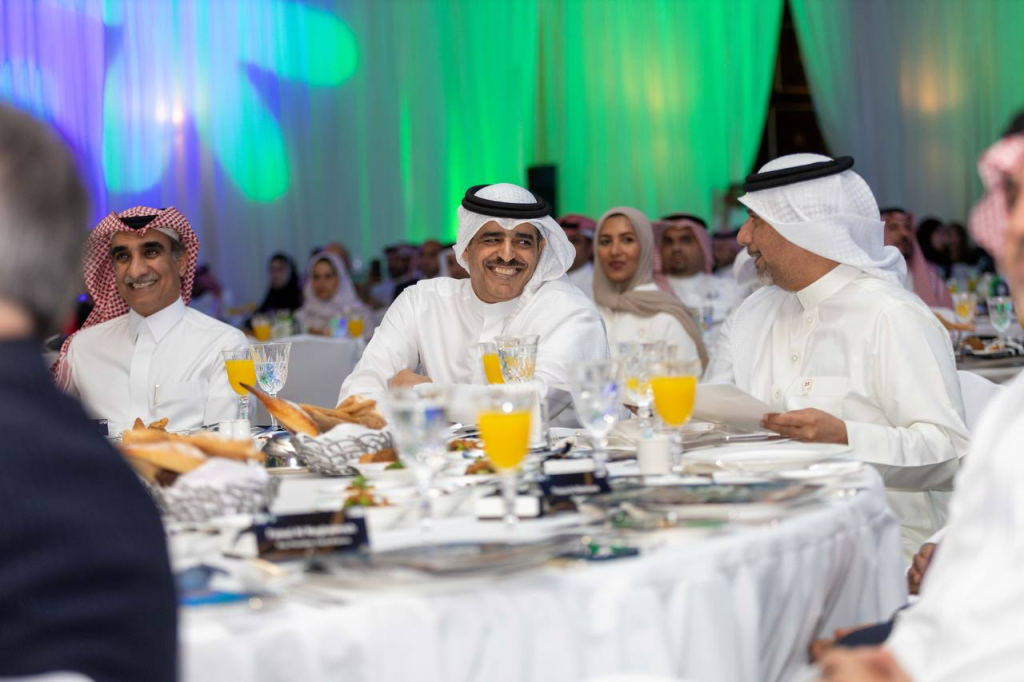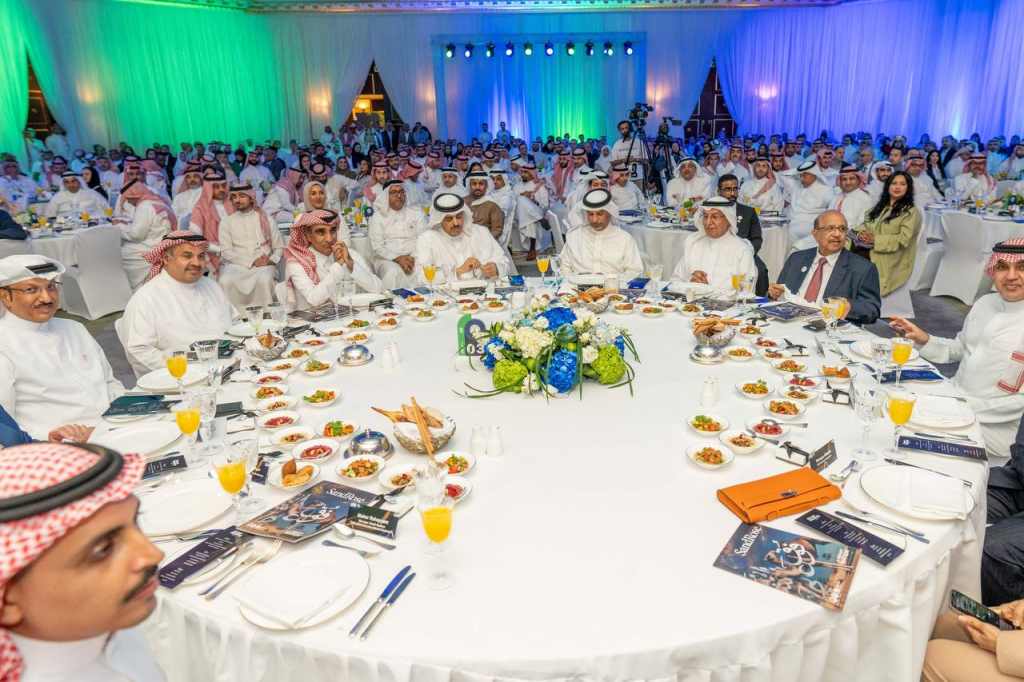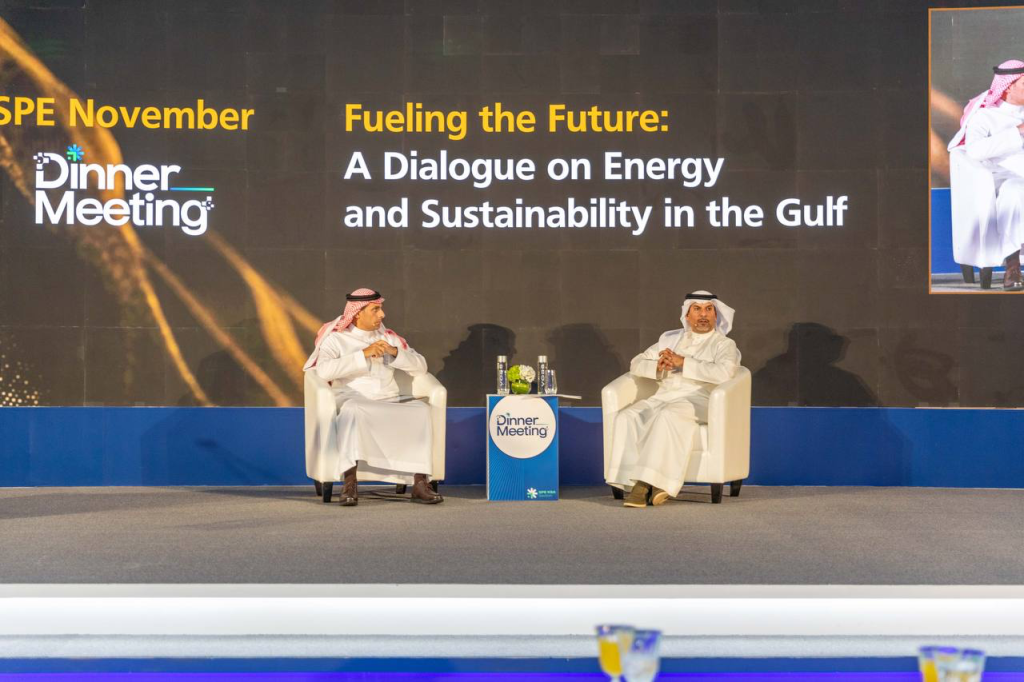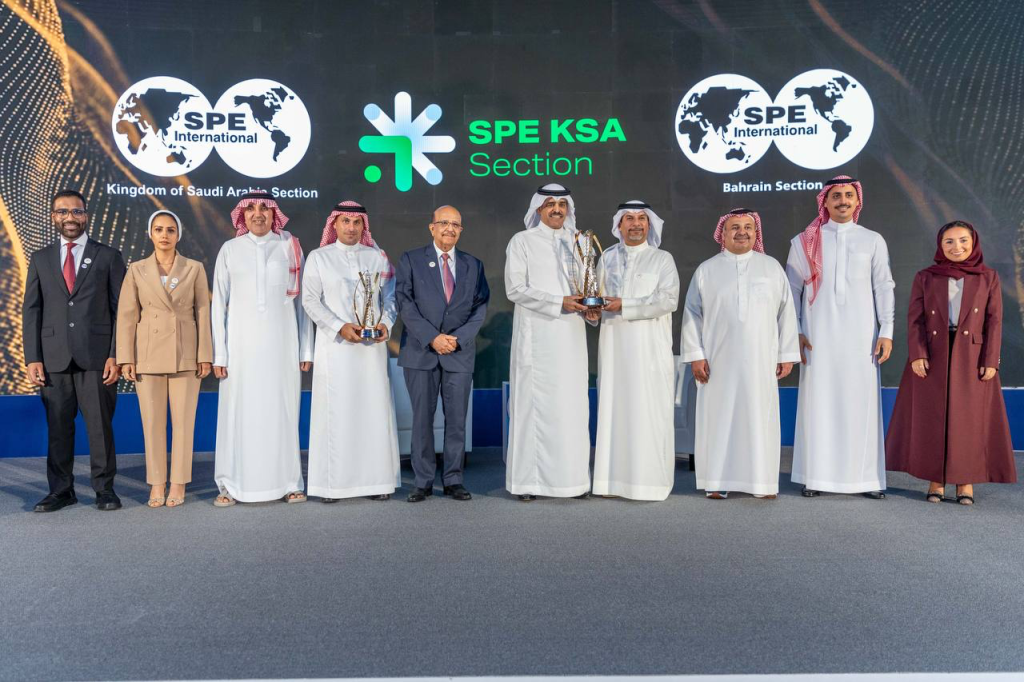Hundreds attend first-ever joint dinner meeting of SPE-KSA and SPE-Bahrain.
On Nov. 25, a landmark event in the Society of Petroleum Engineers (SPE) history occurred with the first-ever dinner meeting jointly organized by SPE-KSA and SPE-Bahrain sections.
Held in Manama and attended by about 500 participants, this inaugural gathering marked a significant milestone, fostering cross-border dialogue on the future of energy and sustainability in the region. The event served as a platform to explore the evolving energy landscape in the Gulf and address pressing global challenges.
The evening featured H.E. Mohamed bin Mubarak Bin Daina, Bahrain’s Minister of Oil and Environment and Special Envoy for Climate Affairs, as the keynote speaker.
The compelling dialogue, titled “Fueling the Future: A Dialogue on Energy and Sustainability in the Gulf,” was moderated by Yousef Al Tahan, Aramco’s head of Unconventional Resources Completion Operations and included insights into the region’s energy dynamics. Also explored was the balance between hydrocarbon reliance and sustainability ambitions.
Prominent figures in attendance included H.E. Faihan M. Al Faihani, Acting Under Secretary of Bahrain’s Ministry of Oil and Environment; Nasir K. Al-Naimi, Aramco Upstream president; as well as other members of Aramco executive management and the SPE-KSA Board of Directors.
Phase 1 of the CCS hub will have the capacity to capture 9 million metric tons of CO2 from three Aramco gas plants and other industrial sources. The captured CO2 will be transported through a pipeline network and stored below ground in a saline aquifer sink, leveraging the Kingdom’s significant geological potential for CO2 storage.
Charting a course toward sustainability
Bin Daina’s remarks highlighted the Gulf’s current reliance on hydrocarbons while charting a course toward renewable sources such as solar and wind energy. He underscored Bahrain’s commitment to sustainability, which includes ambitious net-zero targets and greenhouse gas emission reductions. These efforts are part of Bahrain’s National Energy Strategy, which incorporates energy efficiency measures and advanced technologies such as carbon capture and storage (CCUS).
The Gulf Cooperation Council (GCC) ‘s hydrocarbon resources are vital for meeting global energy demands. The dialogue addressed the broader regional energy transition.
Bin Daina explained how Bahrain maximizes hydrocarbon efficiency through initiatives such as the Bahrain Petroleum Company (Bapco) Modernization Program, which enhances refining capacity and reduces carbon intensity.
Achieving sustainability through collaboration
Attendees were presented with the critical importance of collaboration in driving innovation and sustainability. Bin Daina emphasized the necessity of unity among governments and energy companies to foster innovation, implement green technologies, and reduce emissions.
He highlighted the role of organizations such as SPE in promoting dialogue, sharing knowledge, and building capacity to manage the evolving energy landscape. Stakeholders were urged to prioritize sustainable practices, emphasizing the importance of technology and innovation in addressing global energy challenges.
Advancing energy affordability and inspiring the next generation
Bin Daina also emphasized the Gulf’s opportunity to address the approximately 800 million people lacking access to energy and the region’s vital role in exporting resources and advancing energy efficiency technologies. By balancing innovation, policy alignment, and knowledge sharing, Bahrain and the broader Gulf region can emerge as global leaders in sustainable energy development while ensuring economic resilience and environmental stewardship.
Bin Daina also noted that young professionals are crucial in shaping a sustainable future. Their contributions and proactive measures from GCC governments are essential for building a cleaner and more resilient energy landscape.
This unique gathering reinforced the Gulf region’s role as a leader in sustainable energy innovation, bridging the gap between traditional energy systems and a greener future through a collective commitment to promoting sustainable practices.





